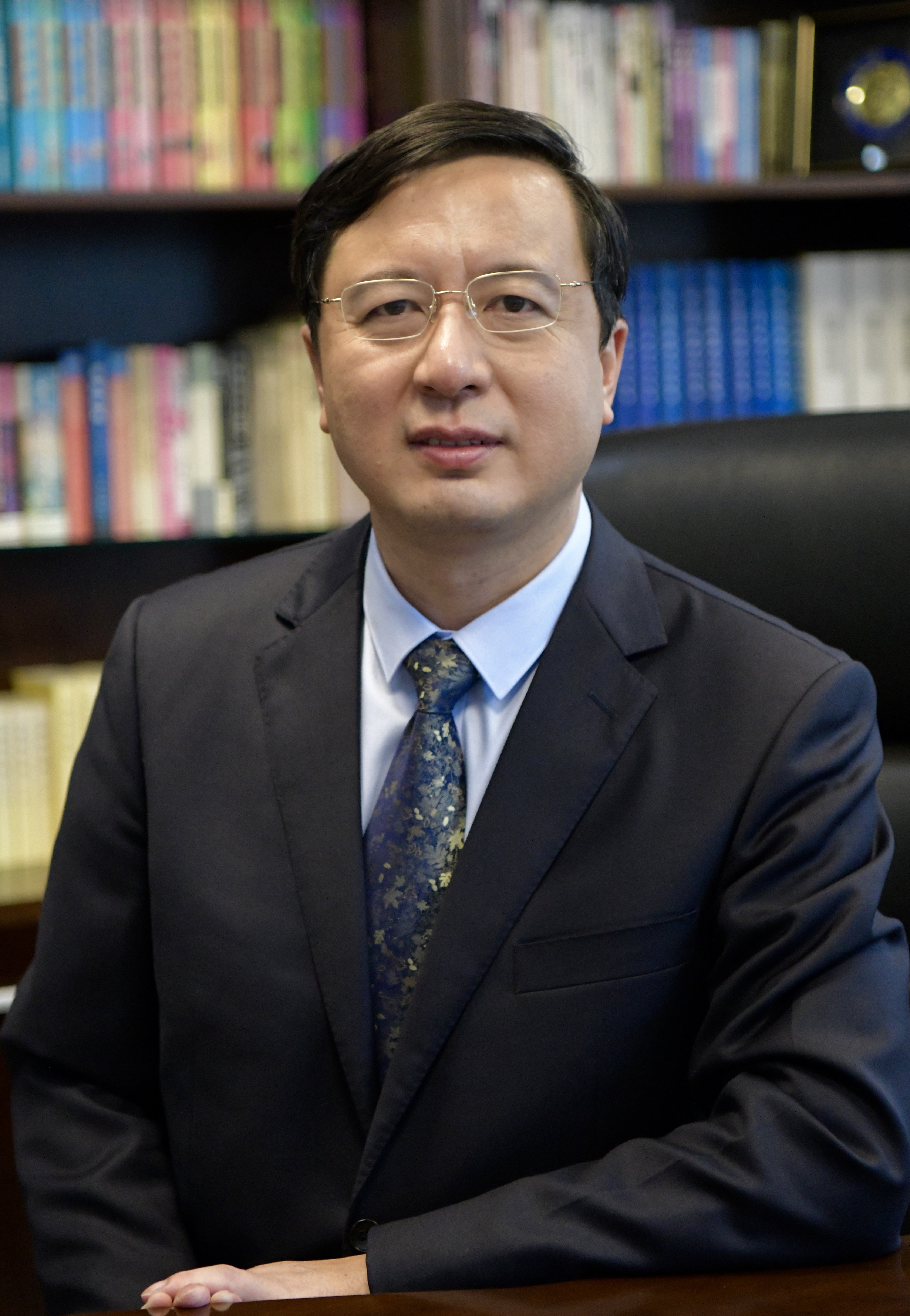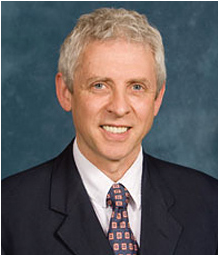

Jie Chen, Academician of Chinese Academy of Engineering, Professor, Tongji University
陈杰,中国工程院院士,教授,同济大学

陈杰,同济大学校长,中国工程院院士,IEEE Fellow、IFAC Fellow。“复杂系统智能控制与决策”国家重点实验室主任、国家杰出青年科学基金获得者、教育部长江学者奖励计划特聘教授、国家自然科学基金委基础科学中心学术带头人、创新研究群体学术带头人、973项目首席、新世纪百千万人才工程国家级人才、全国优秀科技工作者。现担任国务院学位委员会学科评议组控制科学与工程组召集人、教育部科学技术委员会委员兼专门委员会主任,中国自动化学会副理事长、中国人工智能学会副理事长、中国指挥与控制学会副理事长、上海市人工智能战略咨询专家委员会副主任委员,多部国际、国内学术期刊副主编和编委。长期从事控制科学与工程等相关学科领域的教学与科研工作。在动态环境下复杂系统的多指标优化与控制、多智能体协同控制等研究领域内进行了深入研究,并面向应用将在该领域的研究与装备系统建设密切结合,所研制出的装备已得到大量应用。近年来,以第一完成人获国家自然科学二等奖1项、国家科技进步二等奖2项、省部级一等奖4项。何梁何利基金“科学与技术进步奖”获得者。发表SCI收录论文100余篇,以第一发明人获授权发明专利40多项,先后出版学术专著4部、教材和译著各1部。
Title
严格信息-物理约束下的多智能体协同决策与控制
Abstract
随着以无人机/无人车等为代表的多智能体系统的大规模应用,实际应用中严格的信息-物理约束将给传统的多智能体协同决策与控制技术带来极大挑战。本报告在简要回顾现有多智能体协同技术的基础上,针对实际任务中严格的信息-物理约束,从严格时序逻辑约束下的协同行为规划,动态位姿空间约束下的分布式运动规划,仅基于相对观测信息约束下的仿射编队控制等方面分别介绍了多智能体协同决策与控制的最新研究进展,分析了其技术内涵,凝练出制约其发展的若干核心关键问题,并给出具有创新性的解决之道。最后对多智能体协同决策与控制的发展趋势做出预测,以期对相关研究起到借鉴和引导作用。
~~~~~~~~~~~~~~~~~~~~~~~~~~~~~~~~~~~~~~~~~~~~~~~~~~~~~~~~~~~~~~~~~~~~~~~~~~~~~~~~~~~~~~~~~~~~~~~~~~~~~~~~~~~~~~~~~~~~~~~~~~~~~~~~~~~~~~~~~~~~~~~~~~~~~~~~~~~~~~~~~~~~~~~~~~~~~~~~~~~~~~~~~~~~~~~~~~~~~~~~~~~~~~~~~~~~~~~~~~~~~~~~~~~~~~~~~
Karl Johansson, Professor, Kungliga Tekniska Högskolan
Karl Johansson,教授,瑞典皇家理工学院

Karl H. Johansson is Professor with the School of Electrical Engineering and Computer Science at KTH Royal Institute of Technology in Sweden and Director of Digital Futures. He received MSc and PhD degrees from Lund University. He has held visiting positions at UC Berkeley, Caltech, NTU, HKUST Institute of Advanced Studies, and NTNU. His research interests are in networked control systems and cyber-physical systems with applications in transportation, energy, and automation networks. He is a member of the Swedish Research Council's Scientific Council for Natural Sciences and Engineering Sciences. He has served on the IEEE Control Systems Society Board of Governors, the IFAC Executive Board, and is currently Vice-President of the European Control Association. He has received several best paper awards and other distinctions from IEEE, IFAC, and ACM. He has been awarded Distinguished Professor with the Swedish Research Council and Wallenberg Scholar with the Knut and Alice Wallenberg Foundation. He has received the Future Research Leader Award from the Swedish Foundation for Strategic Research and the triennial Young Author Prize from IFAC. He is Fellow of the IEEE and the Royal Swedish Academy of Engineering Sciences, and he is IEEE Control Systems Society Distinguished Lecturer.
Title
Traffic control using automated truck platoons: distributed sensing, actuation, and learning
Abstract
While the long-term benefits of introducing connected and automated vehicles into road traffic are widely understood to be revolutionary, there is much debate about whether its early stages will cause an increase in congestion and issues related to human-driven vehicles. Notwithstanding, connected vehicles acting as mobile sensors and actuators could enable traffic predictions and control at a scale never before possible, and thereby a much more efficient use of the available road infrastructure. In this talk, we will present how a new freight transport technology based on automated truck platoons can be the backbone for such a system. Some basic theoretical and experimental results on the control and coordination of truck platoons will be presented. How such platoons influence traffic flows by acting as a moving bottleneck will then be discussed together with traffic models suitable for designing novel traffic control systems. It will also be argued that these models are possible to learn automatically from data gathered by platoons acting as traffic flow sensors. Experiments show that relatively few connected vehicles are enough to mitigate stop-and-go waves and improve traffic conditions significantly. The presentation will be based on joint work with Matthieu Barreau and Mladen Cicic.
~~~~~~~~~~~~~~~~~~~~~~~~~~~~~~~~~~~~~~~~~~~~~~~~~~~~~~~~~~~~~~~~~~~~~~~~~~~~~~~~~~~~~~~~~~~~~~~~~~~~~~~~~~~~~~~~~~~~~~~~~~~~~~~~~~~~~~~~~~~~~~~~~~~~~~~~~~~~~~~~~~~~~~~~~~~~~~~~~~~~~~~~~~~~~~~~~~~~~~~~~~~~~~~~~~~~~~~~~~~~~~~~~~~~~~~~~
Timothy Gordon, Professor, University of Lincoln, UK
Timothy Gordon,教授,英国林肯大学

Tim Gordon is Professor of Vehicle Control Engineering at the University of Lincoln and President of the International Association for Vehicle System Dynamics (IAVSD). He has a PhD in Theoretical Physics from the University of Cambridge and has pursued a career in control systems and control engineering, with primary interests in road vehicles. Previously he held a number of senior academic positions, including Professor of Mechanical Engineering at the University of Michigan (UM, Ann Arbor), and Research Professor at UM’s Transportation Research Institute. He was also Ford Professor at Loughborough University and has worked extensively with the automotive industry throughout his academic career. He is currently a visiting professor at Tongji University, Shanghai, and is Co-chair of the IEEE Technical Committee on Intelligent Vehicular Systems and Control.
Title
Flexible Vehicle Automation – Connecting Drivers to Intelligent Vehicles for Improved Comfort and Safety
Abstract
To make a fully functional self-driving car means replicating the human driving process inside a computer. This includes aspects of human perception, reasoning, and situational awareness that have proved to be too challenging for the current generation of artificial intelligence. A more flexible approach to vehicle automation is therefore required, with special focus on shared control. In this talk, Professor Gordon presents a broad viewpoint of how new functionalities can be achieved by fusing together the best available attributes of human and vehicular intelligence. Three general areas of flexible automation are identified: shared control for mobility, cooperative active safety, and electronic support for driving enjoyment. A deeper analysis is then presented for a layered (hierarchical) optimal control approach to shared human-vehicle control in safety critical situations.
~~~~~~~~~~~~~~~~~~~~~~~~~~~~~~~~~~~~~~~~~~~~~~~~~~~~~~~~~~~~~~~~~~~~~~~~~~~~~~~~~~~~~~~~~~~~~~~~~~~~~~~~~~~~~~~~~~~~~~~~~~~~~~~~~~~~~~~~~~~~~~~~~~~~~~~~~~~~~~~~~~~~~~~~~~~~~~~~~~~~~~~~~~~~~~~~~~~~~~~~~~~~~~~~~~~~~~~~~~~~~~~~~~~~~~~~~
Devesh Upadhyay, Ford Motor Company, Technical Leader, US
Devesh Upadhyay,美国福特汽车公司,智能网联动力总成控制 首席专家
Title
Real Time Control and Monitoring in the Age of Connectivity, Machine Learning and Indirect Sensing
~~~~~~~~~~~~~~~~~~~~~~~~~~~~~~~~~~~~~~~~~~~~~~~~~~~~~~~~~~~~~~~~~~~~~~~~~~~~~~~~~~~~~~~~~~~~~~~~~~~~~~~~~~~~~~~~~~~~~~~~~~~~~~~~~~~~~~~~~~~~~~~~~~~~~~~~~~~~~~~~~~~~~~~~~~~~~~~~~~~~~~~~~~~~~~~~~~~~~~~~~~~~~~~~~~~~~~~~~~~~~~~~~~~~~~~~~
Hui Xie, Professor, Tianjin University, Director of the Committee of ITICE
谢辉,教授,天津大学,中国内燃机学会内燃动力智能技术分会 主任委员
